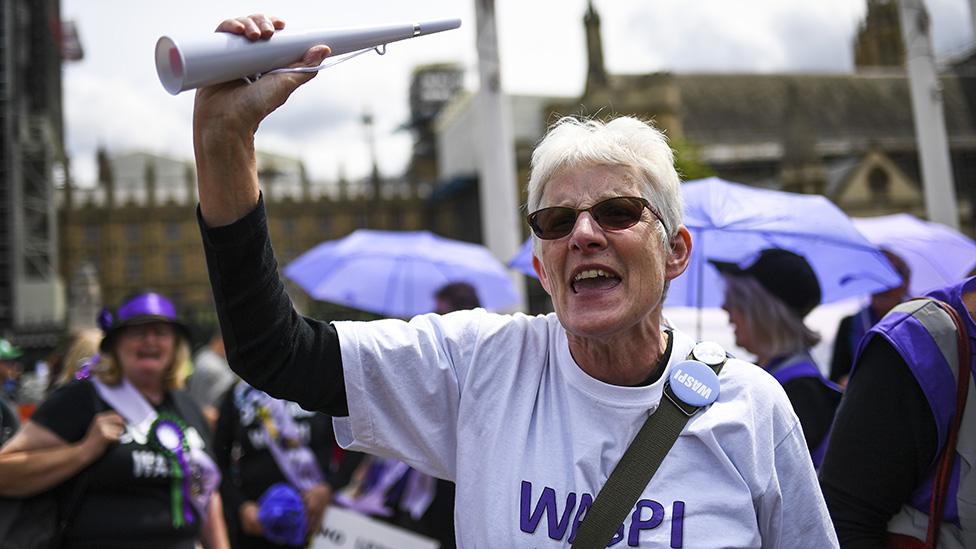Waspi women: 'I want the £45,000 state pension that was stolen from me'
- Published
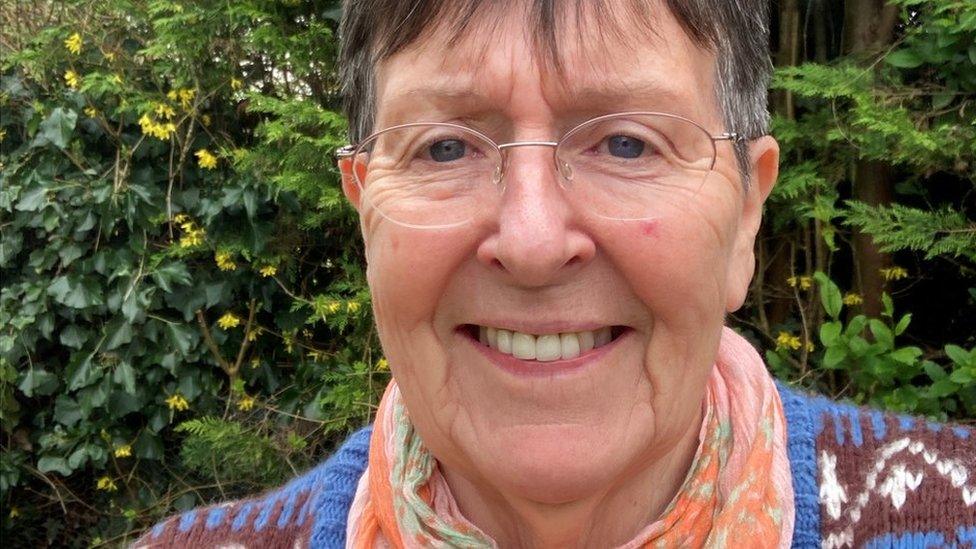
Carole Cooper is angry at the level of suggested compensation
Millions of women born in the 1950s have long been furious about not being told in a timely way that they would be affected by the rising state pension age.
Now the Parliamentary and Health Service Ombudsman has published a report saying they should be compensated.
The BBC spoke to women hit by the pension age change for their reaction to the report.
'I'm angry - they stole from me'
Carole Cooper, 68, from south Cambridgeshire, says the government has "stolen £45,000" from her.
She should have retired in 2015 and had no idea that she wasn't going to be paid her state pension. She only found out by applying for her bus pass and being told she wasn't old enough.
"I worked hard all my life and then I had to wait a whole six years with no income."
She had to spend £20,000 by taking a big chunk of money out of a private pension pot to re-train in healthcare, including reiki, to make some income until she turned 66.
Carole says she is angry about the level of compensation suggested by the ombudsman of between £1,000 and £2,950.
"I don't want compensation, I want the money you have stolen from me," she says.
When she first started work at 16 she was told her National Insurance would go towards her healthcare and pension.
Carole feels the government "changed the goal posts" and owes her.
'It would have been better had we had a pension from 60'
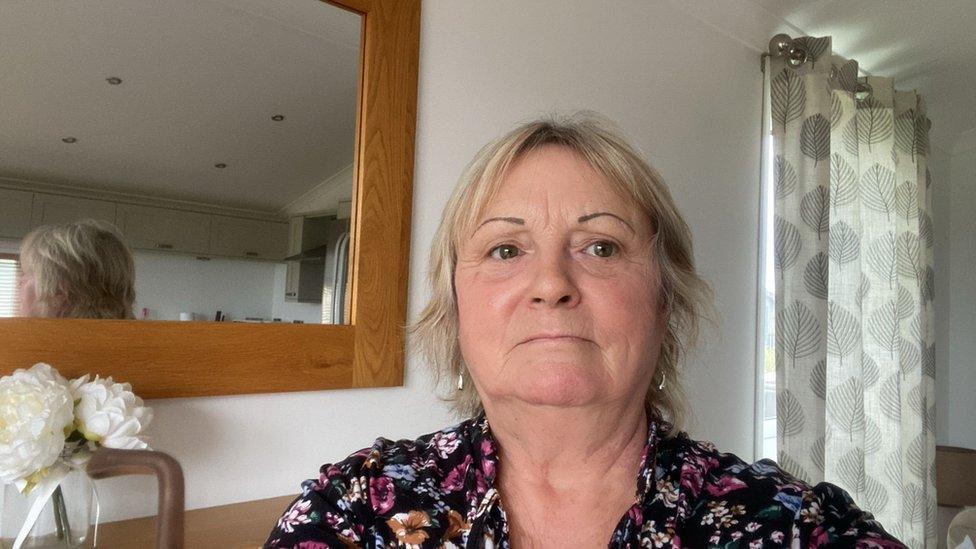
Audrey Evans says the government "robbed" her of precious retirement years with her husband
Audrey Evans, 66, from Nottingham, says she feels "really aggrieved that the government have changed the age as they went along".
"They haven't considered the impact on women," she says, adding that people who were born in the 1950s tended to work from a much younger age.
She was just 14 when she started working full-time in a sewing machine factory.
Eventually she qualified as a nurse and spent the rest of her career in the caring profession.
Having to postpone retirement had a "devastating impact" on her life as her husband is nine years older, so he was 74 before they could retire together.
"That's a massive gap in the quality of retired life together," she says. "The government basically robbed us of precious years together, a total injustice."
The possibility of compensation "would be some recognition that we were hardly done by," she says, but it "would have been better had we had a pension from 60".
'The government should be ashamed'
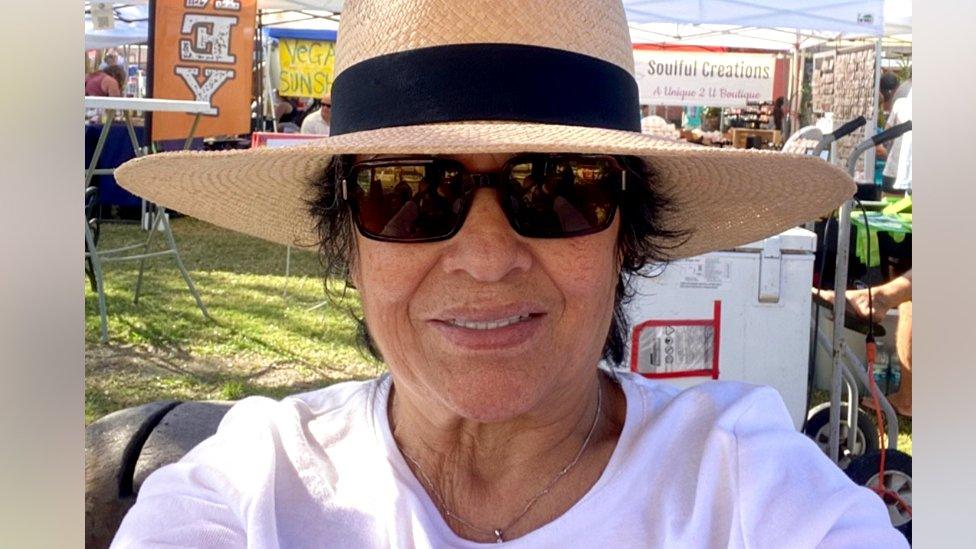
Domitila Paz-Riley was shocked that she was not due any state pension for two years after retiring
Domitila Paz-Riley, 71, moved to Liverpool from Honduras in 1976 to be with her first husband. She initially got a job as a library assistant at Liverpool County Council, and later in health and beauty.
She stopped working in 2012, but says she didn't get her pension money until 2014.
"It didn't click that I wasn't going to get money until I saw it on the news. I was going through a divorce at the time so it wasn't easy.
"I was thinking, 'why have I not been told that I won't get any pension until two years later?' I didn't receive a letter or anything."
Luckily, she was able to get her council pension as a lump sum - just under £8,000 after tax - which she managed with until she got her state pension.
Domitila says the ombudsman's report is "like a victory in a way, but disappointing".
"The people writing the report had the power to suggest something better for us," she says.
"We didn't get paid. I put in 30 years of contributions because that's what you have to do. What about other women who worked 40-50 years? The government should be ashamed. Those women deserve compensation. There are women out there who won't have managed."
'It may not help me'
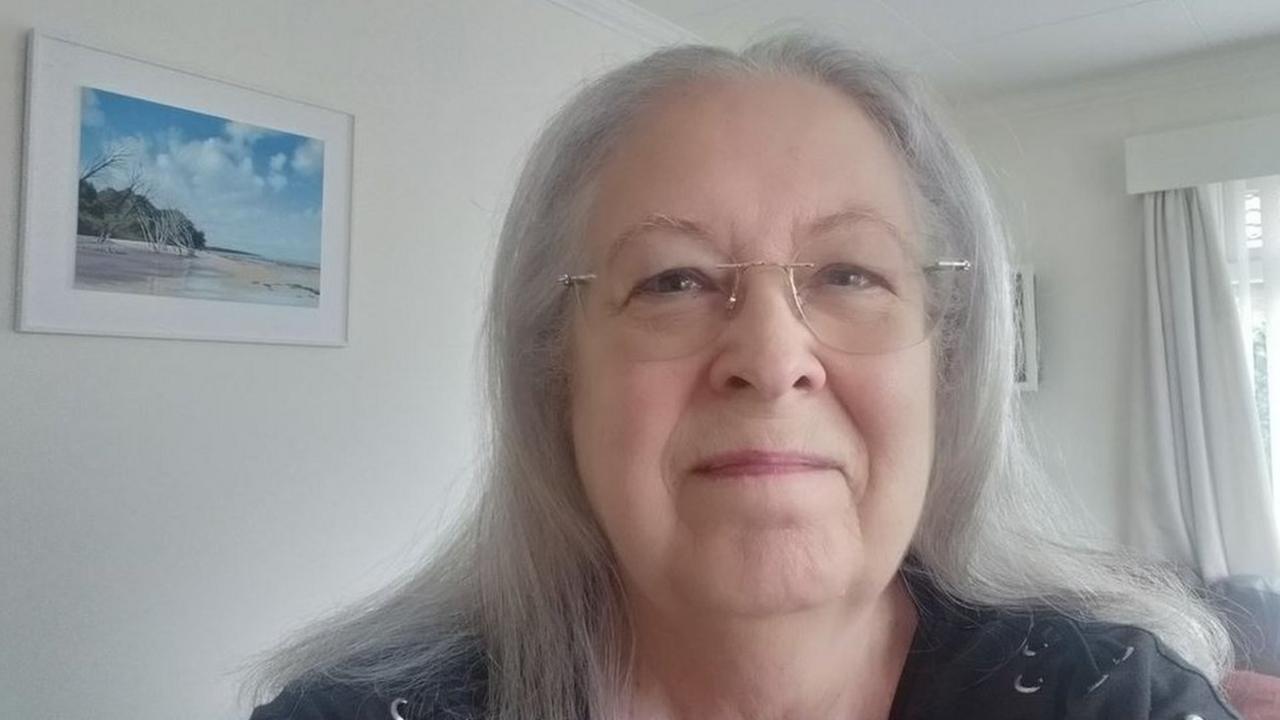
Pat Pollington says "the clock is ticking" on compensation
Pat Pollington, 70, from the Isle of Wight, had to work four years longer than she had planned to get her pension after a career working with technology and then renewables firms.
She says that even though the ombudsman has recommended compensation, that is no guarantee that the government will pay out.
Even if Parliament does decide to give compensation, she says it could end up as a similar situation to delays to payouts for sub-postmasters in the Horizon scandal, where some have died before getting any money.
"It may not help me," she says. "Once you've got women going into their 70s, you've got a lot less time. There will be women who've passed away before we get this money."
"The clock is ticking," she adds. "The longer they [the government] prevaricate, the less women they'll have to pay out to."
'The level of compensation is highly disappointing'
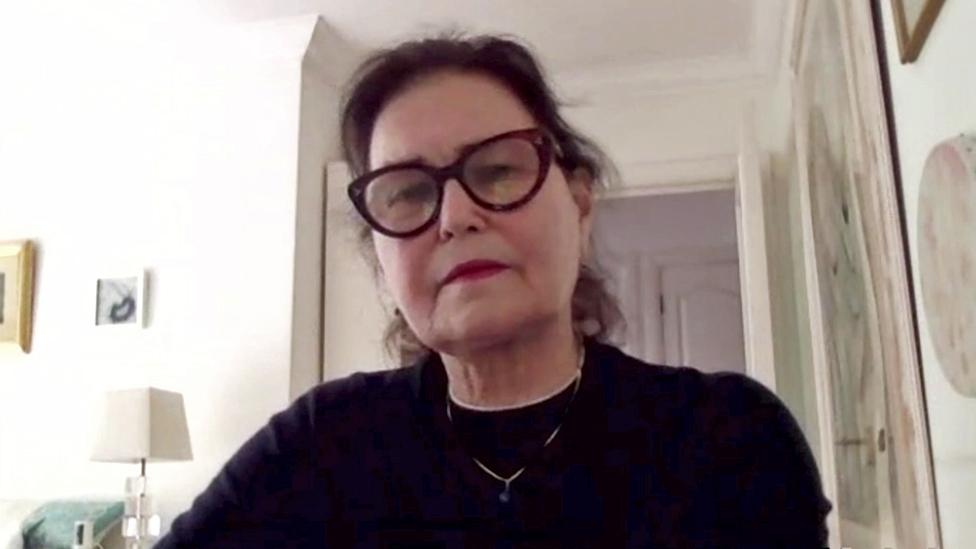
Michele Carlile had no way of paying her mortgage
Michele Carlile in London had to give up a senior role in education at the age of 59 after suffering a heart attack.
Michele, who was born in 1954, told the BBC she thought she would be eligible for the state pension as she was about to turn 60 and was shocked to find out she wasn't.
"That has had a terrible effect. Right at the start I had no way of paying my mortgage, I had to go and stay with my son so that I could rent my property.
"Then, just as we were getting to grips with that, suddenly in 2011 the coalition [government] upped it for my age group by a considerable amount, another couple of years."
She says it's good the ombudsman is recommending compensation but says the amounts mentioned were "highly disappointing".
"I would definitely be expecting more than that which has been suggested," she says.
'Something needs to be sorted now - but we won't stop'
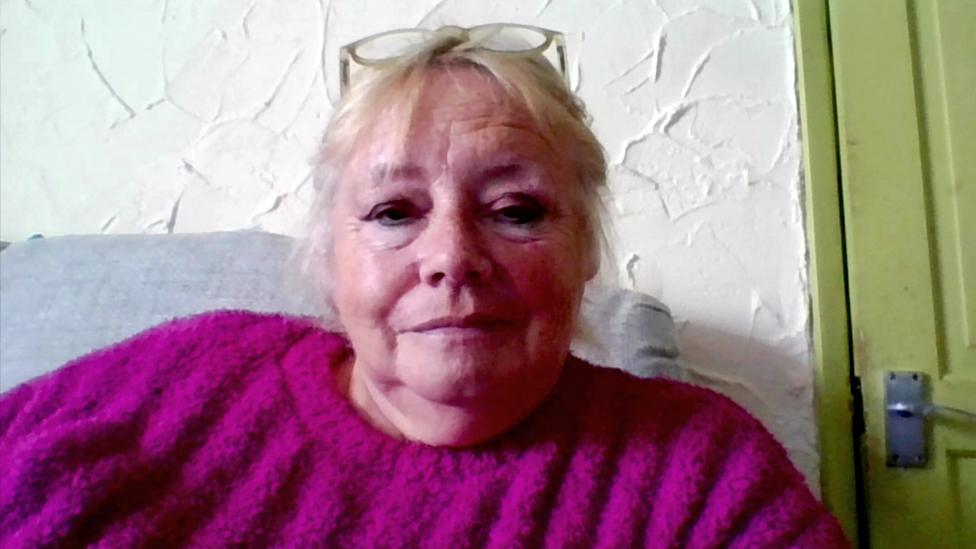
Karen Woodward wonders where the money she would have received if she'd retired at 60 has gone
Karen Woodward, 65, from Portland, Dorset, only found out about the change to the state pension age when a friend told her. She had just turned 58 and had planned to retire two years later.
"It was a huge shock," she says. As she was self-employed, she hadn't started a pension plan "because I didn't think there was any need to".
Instead, she has had to continue working, despite having "very, very painful days" due to arthritis.
Karen says she has missed out on £47,000 due to the change. What she wants to know is: "Where's all that money gone?"
She believes the report should have given a definitive figure for compensation.
"I suppose you have to take on board just how badly people were affected," she acknowledges.
"But by the time they have worked out some system of defining how badly certain people were affected... we are going to be another 10 years down the line. Something really needs to be sorted now."
When asked if she hopes women like her will ever get their compensation, she replies: "We will. Because we ladies won't stop until we do."
A DWP spokesperson said: "The government has always been committed to supporting all pensioners in a sustainable way that gives them a dignified retirement whilst also being fair to them and taxpayers."
Reporting by Victoria Park-Froud, Tom Espiner, Osob Elmi and Kris Bramwell
- Published21 March 2024
